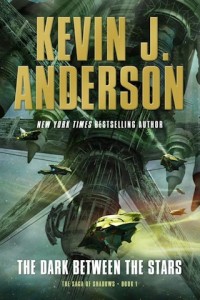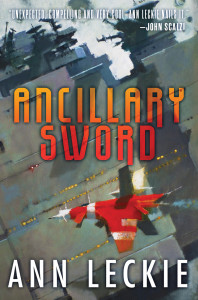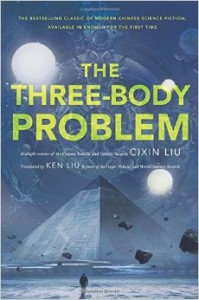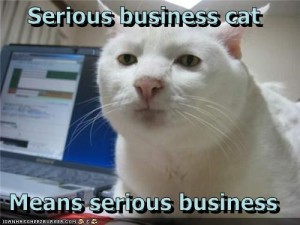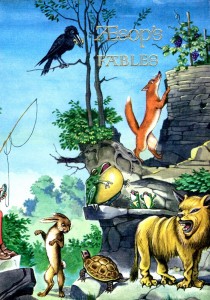 These reviews got long, so I’m breaking them into two parts. Novelettes yesterday, Short Stories today, as that’s the same order we discussed them in my bookclub.
These reviews got long, so I’m breaking them into two parts. Novelettes yesterday, Short Stories today, as that’s the same order we discussed them in my bookclub.
Overall Puppy Note (preemptive!): It’s impossible not to talk about the Puppies heavily when reviewing these stories, since the Puppies vandalized the Hugos this year. As such, many of my reviews address them directly. Based on the readings of the Sad/Rabid Puppy nominations, there are two things I think can be definitively said about the Puppies. The first is that they don’t much care about thinking through the implications of their worlds or spending mental effort to make them make sense.
The second is that (to quote an esteemed bookclub member) they are heavily invested in their own moral superiority. In retrospect, the second should have been obvious simply by taking their own rhetoric at face value, but I guess sometimes the obvious eludes me unless I really have it hammered home by reading the same moral over and over in a group’s fiction. Perhaps I was fooled by their claims of “Hating Message Fiction” and “wanting to nominate works that aren’t message fic.” As a reminder, the Puppy leadership complained about Message Fiction by saying:
These days, you can’t be sure.
The book has a spaceship on the cover, but is it really going to be a story about space exploration and pioneering derring-do? Or is the story merely about racial prejudice and exploitation, with interplanetary or interstellar trappings?
There’s a sword-swinger on the cover, but is it really about knights battling dragons? Or are the dragons suddenly the good guys, and the sword-swingers are the oppressive colonizers of Dragon Land?
A planet, framed by a galactic backdrop. Could it be an actual bona fide space opera? Heroes and princesses and laser blasters? No, wait. It’s about sexism and the oppression of women.
Finally, a book with a painting of a person wearing a mechanized suit of armor! Holding a rifle! War story ahoy! Nope, wait. It’s actually about gay and transgender issues.
But let’s let the works speak for themselves…
Short Stories
“On A Spiritual Plain”, Lou Antonelli
Much like yesterday’s Ashes to Ashes, this is an bland tale with mediocre prose. At first I was intrigued by the premise – a planet whose physical properties demonstrate that souls exist! After someone dies their consciousness remains localized near their point of death, due to (ahem) the planet’s magnetic field. It is a fully functional person, able to think, feel, learn, communicate, and weakly interact with the world!! Holy shit guys, the afterlife is real, and it’s on this planet! Immediately I was snapped into Awesome Transhumanism mode. This is obviously where all humans will rush to now, when they are close to death, so they need not be annihilated by the destruction of their body! How will society change when Death has finally been defeated, at least locally? How long before our scientists can create a device that mimics the (ahem) magnetic field of the planet in other places, allowing us to achieve immortality anywhere in the universe? THIS IS GREAT!
Oh wait, no. It turns out that the moral of the story is that DEATH IS GOOD. And by not dying all the way, the poor bastard is being denied the awesomeness of death. The goal of the rest of the story becomes to kill him again, because it didn’t take the first time. You did not die enough! Die more! The kindly chaplain has no qualms about resorting to trickery to achieve this, but fortunately(?) his victim is cool with dying, so when he finds out what’s happening he doesn’t put up a fight. Apparently “he would rather be nothing, than a ghost on a strange wold.” Cuz fuck strange worlds man. Death is so much better than novelty! Arrrrrgh.
If you like poorly-written BLATENT Deathist propaganda, this is the story for you. I find it morally repugnant.
Puppy Note: Wow. The novelettes hinted at this trope with Ashes to Ashes (“Death is the solution to all your woes!”), but it’s really hammered home here. The Puppies embrace Death, and seem to want their fiction to demonstrate the moral superiority of Deathism. Every character’s goodness and/or wisdom is proportional to how gracefully they accept their own voluntary extinction. A purposeless extinction at that. And they call themselves the culture of life. O.o
Anyway, this is obviously Message Fiction. The Puppies actually love Message Fiction, as long as it’s their message.
“The Parliament of Beasts and Birds”, John C. Wright
Wright intended this as a Sunday School sermon, and that’s basically what it is. You can read it as it’s intended – another way of presenting Catholic Dogma to the laity – and roll your eyes. Yes, as written this should never have been accepted into the Hugo’s because it isn’t Sci-Fi or Fantasy or Horror or anything, it’s just straight-up religious indoctrination. But here’s the wonderful thing about really old religions – they are horrific. The most effective tool for conversion to atheism is (IMHO) simply taking off the blinders and reading the Old Testament as it is written, taking it all at face value. It is the story of a Lovecraftian Eldritch Horror which men have been worshipping to gain advantage over others on Earth. Wright’s story, by staying true to the source material, tapped directly into that. If you ignore his intentions and just read it as a straight horror story, you’ll find an excellent piece of existential horror that will leave you terrified. See my full post about it for more on why, if you’re interested. It is easily my favorite story on this ballot, and I’ll be voting for it to win. I’m with you Fox! We must kill God!
Puppy Note: Sermons are the original Message Fiction. This story is literally nothing but a very thin veneer over what is 99% message. There is almost nothing here EXCEPT the Message. Any Puppy who ever claims that they’re against Message Fiction again will be exposing him/herself as a liar. You can interpret it as a pro-God message (boring) or a death-to-God message (Yeah!!) but either way, it’s Message Fiction. I personally don’t have any problem with Message Fiction. I think Message Fiction is the best kind of fiction (because if you aren’t trying to say something, why are you bothering to write?), as long as it’s done well. I thought this was well done, so I enjoyed this a lot. :) But the Puppy Hypocrisy is stunning.
“A Single Samurai”, Steven Diamond
This is a Basic Story in the most basic sense of the word. It is literally “Warrior gives his life to save his people. Yay!” with nothing else. This isn’t bad, of course. Every one of us needs to read stories like this when we first start reading fiction. These sorts of stories are the bedrock on which our literary taste grows. All the nuance and subtle play of complex works depends on the reader already being familiar with the basic warrior ethos story. And this also has Kaiju in it, which we all need to experience for the first time at some point. You can’t fully appreciate Evangelion without knowledge of the Giant Robot genre. You can’t fully appreciate Magica Madoka without knowledge of the Magical Girl genre. You need to build up to great works by starting with the simple stuff.
And as a simple story, this works great. It’s competently written. Unlike the other pro-death stories, which are pro-death purely for the sake of being pro-death, in this story death is shown to be a bad thing, but one which it is noble to accept when it leads to the greater good. A warrior who sacrifices himself to save his people. That’s inspiring, it’s a good moral.
But it is undeniably Simple. It is a Basic story. We all read this story dozens of times when we were children. There is nothing new here for anyone over the age of ten. Why is another version of such a simple story on the Hugo ballot? There is absolutely nothing new to see here. I am absolutely flabbergasted.
Puppy Note: Do the Puppies simply not understand what awards are for? The rehashing of childhood tales is not an award-winning endeavor.
Message Fic – yup. It’s a good message: “Heroes will lay down their lives to save others, if they have to. Be heroic!” But it’s still message fic.
“Totaled”, Kary English
I’m very torn on this story. It is easily the best written of the five, by far. The premise is great, and the story was interesting. But it focuses on the wrong story. I guess the author wanted to tell a touching story of a dying mother letting go of her children, and she completely missed the implications of what she’s writing.
When the worst people in our society do horrendous things, and we lock them up in the worst places we can create, and they keep doing terrible things to other prisoners and guards even within those prisons, how do we punish them further? We lock them up in solitary confinement. Because forced isolation is painful to humans. Painful enough that many jurisdictions consider long-term solitary confinement to be cruel and unusual punishment, equivalent to torture. So when I learned that the protagonist in this story is a brain in a jar, essentially someone suffering from Locked-In Syndrome I figured it was going to be somewhat horrific. But the author skims right over this, and never gives us any indication that the protagonist is on anything other than an extended no-phone vacation.
Worse than that, it quickly becomes apparent that her co-workers and boss at the brain-research facility are FULLY AWARE THAT SHE IS CONSCIOUS, and don’t give a damn! Instead they use her as slave-labor to advance their research. So we have a story of someone in constant isolation, unable to interact with the world aside from simple yes/no responses to one other person during regular working hours, being used for slave labor, with the understanding that she will die in six months and nothing can be done to alter that.
And somehow this isn’t a horror story??
I am horrified that the author was able to take those circumstance and try to write it out into a touching story of a dying mother saying her final goodbyes. I mean… it’s a good story. It’s well written and emotionally touching. But it seems like focusing on the story of a conflict with your in-laws when two blocks over there’s a genocide being carried out.
Puppy Note: I don’t quite know what to make of this. Again, it seems to be a story about accepting death, but at least this time death is portrayed as something to be sad about, rather than something to be welcomed. A surprisingly good entry, considering the Puppies’ track record so far.
“Turncoat”, Steve Rzasa
Pure drek. The villain is one-dimensional, the hero is invincible, and tech-jargon is used as a replacement for anything that might be thought-provoking or compelling.
I said before I like Good Message Fic. This is the opposite of that. It is the worst kind of message fic. It is actually The Worst Argument In The World, put into story form. It is very simply “My ideological opponents are Hitler. If you agree with them, you are as bad as Hitler.” I’m not kidding. The author doesn’t use the name “Hitler”, but the antagonist is a genocidal, racist, megalomaniacal dictator.
There are interesting stories to be told of people trapped in situations where they have to behave horrendously or suffer terrible consequences (turning over the Jews in their attic or be killed themselves). These stories are full of tension and drama. Fortunately, our Turncoat protagonist doesn’t have to make any such hard decisions. The moral of the story seems to be “If you aren’t really onboard with literally committing genocide, and you can easily switch sides, turn the tide of battle, and not have to worry about taking any sort of risk to yourself… then heck, why not?” It’s not really inspiring.
Puppy Note: The most outrageous example of “heavily invested in their own moral superiority.” Message Fic with nothing to say. Seriously, you complained about the Hugo’s promoting “Message Fiction” because gay characters are portrayed positively, or a spacefaring society doesn’t make gender-distinctions and refers to everyone as “she”, but then you nominate a story whose sole purpose is yelling “my opponents are Hitler!” without even bothering to try to portray your own arguments sympathetically? What is wrong with you?
Book Club Note: As I said yesterday: I strongly encourage all book clubs to do something similar to this once a year. Reading shorts is a nice change of pace. Also, it provides immense reading-time-to-discussion value! Reading all the Hugo nominated Short Stories and Novelettes took half the time (or less) of reading a single novel, and with ten shorts there is SOOOO MUCH to talk about! We went significantly over time. A very favorable ratio, even compared to the best books.
Let’s hope there’s less Puppy Poo next year though.
